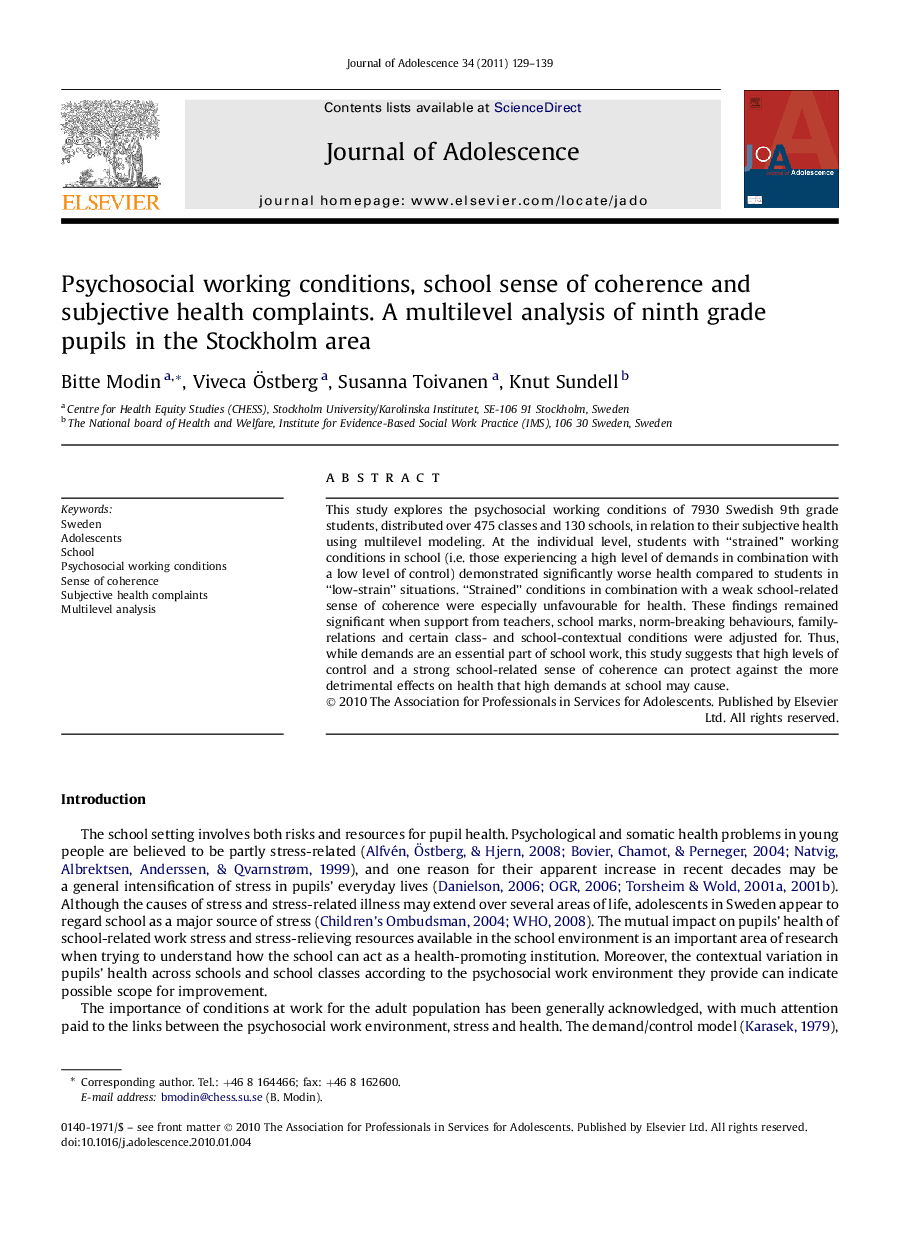| Article ID | Journal | Published Year | Pages | File Type |
|---|---|---|---|---|
| 880947 | Journal of Adolescence | 2011 | 11 Pages |
This study explores the psychosocial working conditions of 7930 Swedish 9th grade students, distributed over 475 classes and 130 schools, in relation to their subjective health using multilevel modeling. At the individual level, students with “strained” working conditions in school (i.e. those experiencing a high level of demands in combination with a low level of control) demonstrated significantly worse health compared to students in “low-strain” situations. “Strained” conditions in combination with a weak school-related sense of coherence were especially unfavourable for health. These findings remained significant when support from teachers, school marks, norm-breaking behaviours, family-relations and certain class- and school-contextual conditions were adjusted for. Thus, while demands are an essential part of school work, this study suggests that high levels of control and a strong school-related sense of coherence can protect against the more detrimental effects on health that high demands at school may cause.
